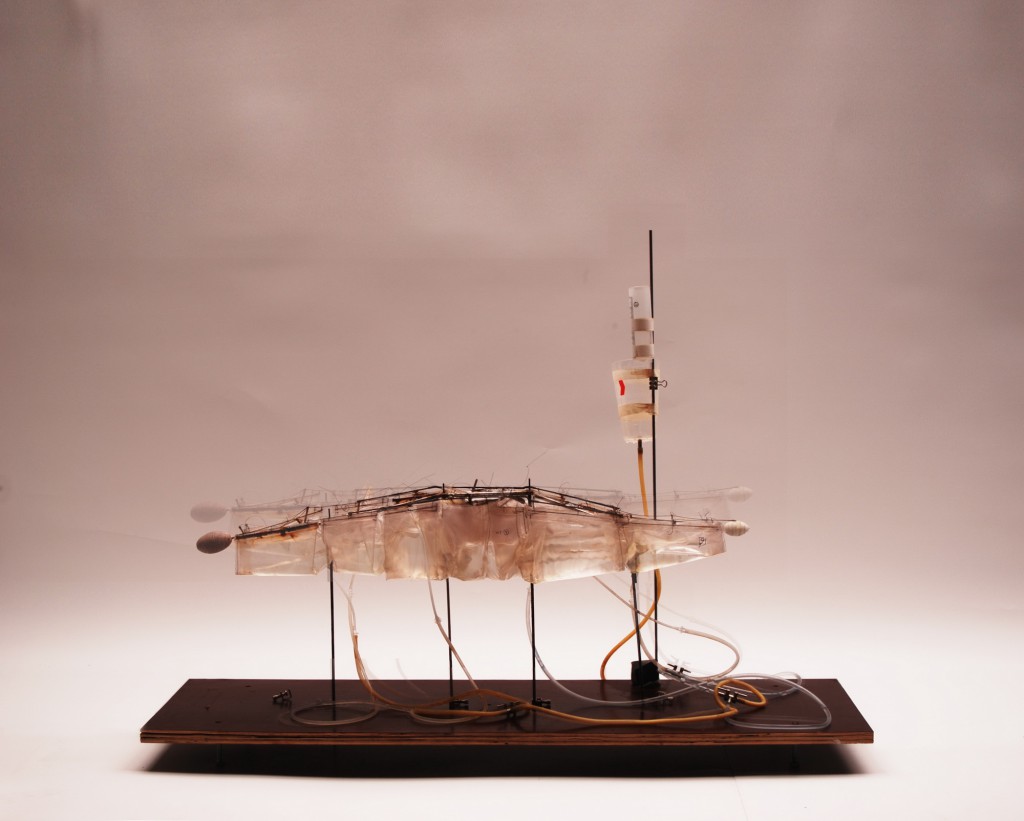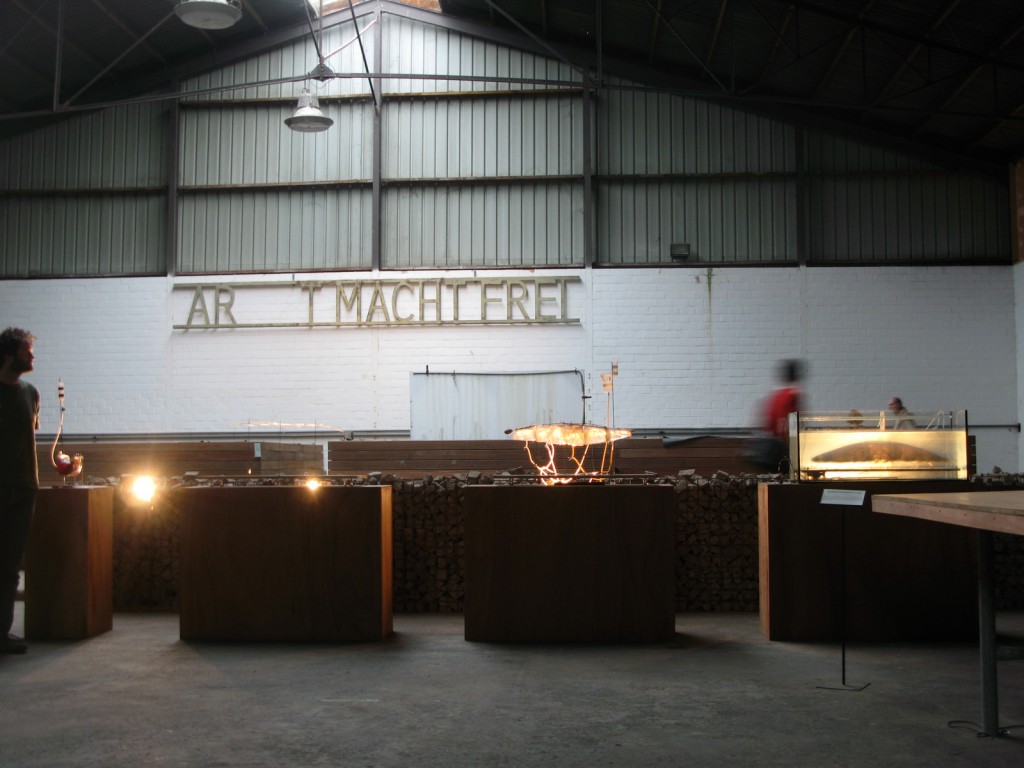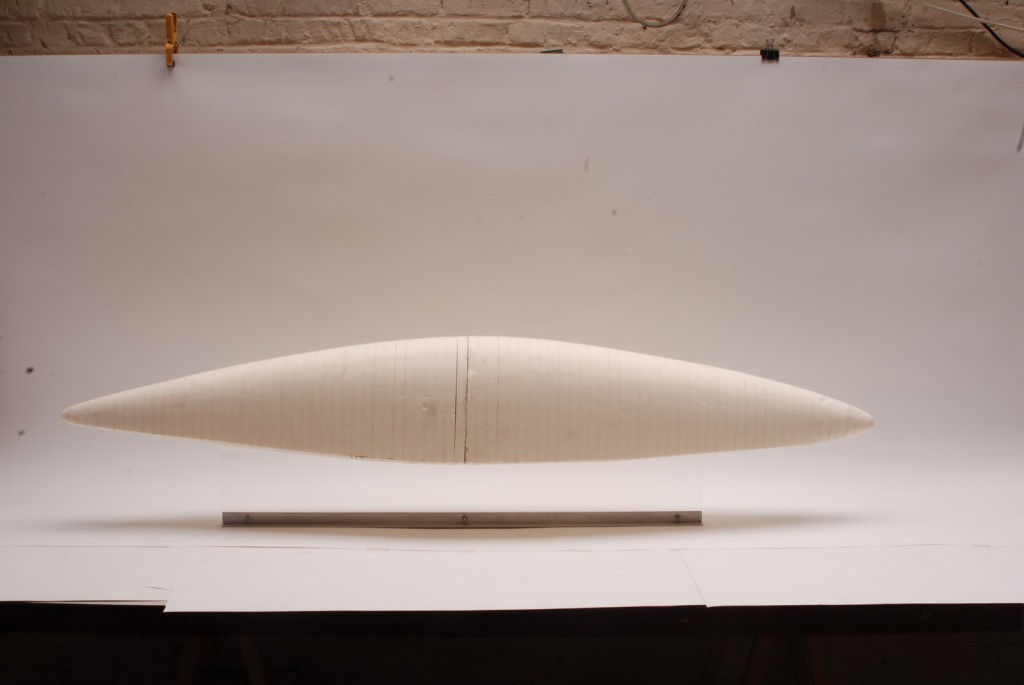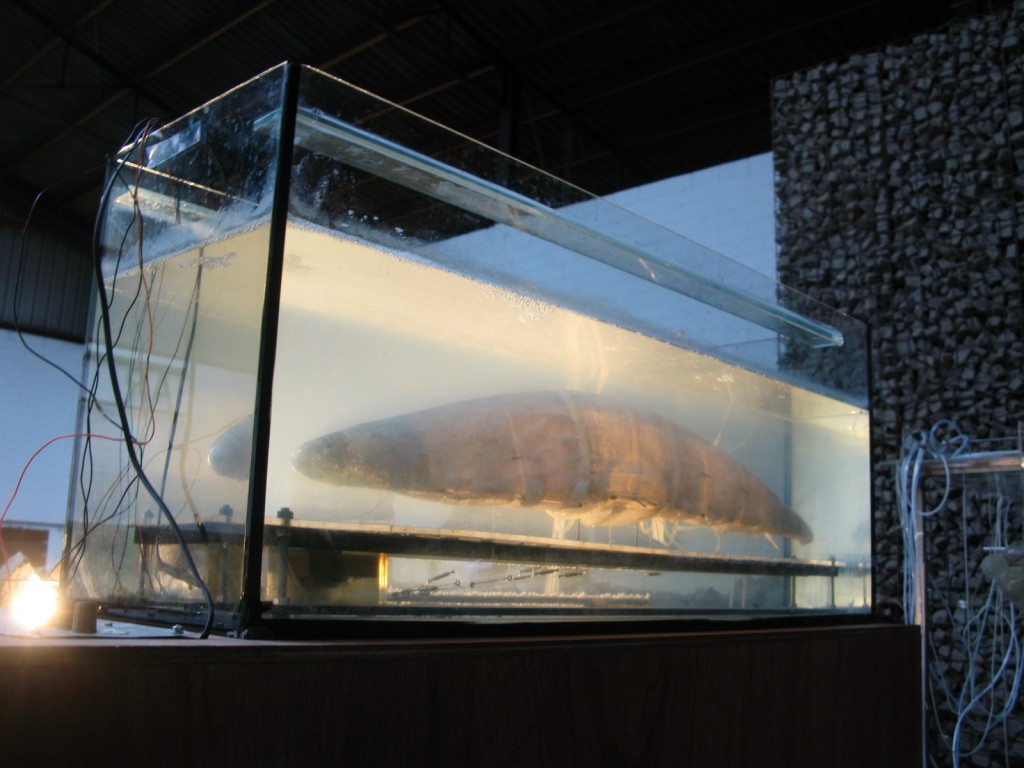Hydrostatic models
Hydrostatic models Verbeke Foundation, Left to right: hydrostatic simulation of gasbag, model of load-bearing structure, inverted simulation of hull shape, weightless animatronic model in water tank.
The rigid models show a sleek, geometric shape. The ship however is not conceived as a rigid envelope. The gasbags are not pressurized. These bags can deform and their volume can change. The overall shape is built up from a number of separate volumes, which can move with respect to each other. As a consequence of this, the ship can bend in order to steer the ship and the hull can ‘shape shift’ to change its aerodynamic properties.
Foam model 1/50th. Hull shape in polyurethane foam. Rigid model constructed from sections. Length: 170 cm Weight: +- 5kg
The shape is not generated by pressure, but by the weight of the water contained inside. The volume of the sack is variable and the shape morphs as more water is added or some is removed.
If this bag was to be inverted and filled with a gas lighter than air, instead of water, you would get the mirror effect of this simulation.

Hydrostatic model 1/100th
This model was built as a simulation tool for testing possible shapes when combining a number of inflatable gas bags. With gas inlet tubes, the different volumes can be filled to varying degrees. The load-bearing structure can be manipulated by hand.
The hydrostatic models are not a realistic visual representation of the ship, but aim to simulate how the ship would move.
They consist of a series of studies built to research which shapes are possible, and how these shapes behave.
Not a hard and rigid volume, but something that is malleable, bends, folds, wrinkles…
By filling the model gasbags with alcohol and placing the model inside a water tank, the simulations can be built upright.
It can then be made weightless inside its tank, and be controlled using pneumatics.




